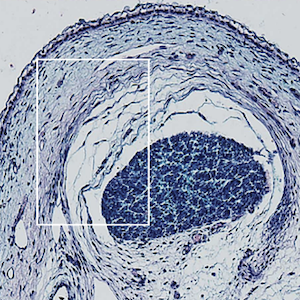62nd National Congress of the Italian Society of Rheumatology
Vol. 77 No. s1 (2025): Abstract book of the 62th Conference of the Italian Society for Rheumatology, Rimini, 26-29 November 2025
PO:33:190 | Travel distance to tertiary healthcare reflects disease severity and medication access in systemic sclerosis patients: insights from the Italian systemic sclerosis progression investigation registry of the Italian Society of Rheumatology
Camilla Teresa Magnanimi1, Enrico De Lorenzis1, Gerlando Natalello1, Fabio Cacciapaglia2, Rossella De Angelis3, Edoardo Cipolletta3, Maria Antonietta D'Agostino1, Veronica Cudullo4, Giacomo De Luca5, Dilia Giuggioli6, Francesca Ingegnoli7, Valeria Riccieri8, Lorenzo Dagna5, Fiorenzo Iannone9, Clodoveo Ferri6, Marco Matucci Cerinic5, Silvia Laura Bosello1. | 1Division of Rheumatology and Clinical Immunology, Catholic University of the Sacred Heart, Fondazione Policlinico Univer, Roma, Italy; 2Department of Medicine and Surgery, LUM University Giuseppe De Gennaro Casamassima e Rheumatology Service Miulli Ge, Bari, Italy; 3Rheumatology Unit - Department of Clinical and Molecular Sciences, Polytechnic University of Marche, Ancona, Italy; 4Department of Rheumatology, Policlinico San Matteo, Pavia, Italy; 5Unit of Immunology, Rheumatology, Allergy and Rare Diseases UnIRAR, IRCCS San Raffaele Scientific Institute, Vita-Salu, Milano, Italy; 6Rheumatology Unit, School of Medicine, University of Modena and Reggio Emilia, Modena, Italy; 7Division of Clinical Rheumatology, ASST Pini, Dept. of Clinical Sciences e Community Health, Research Center for Adult a, Milano, Italy; 8Department of Rheumatology, La Sapienza University of Rome, Roma, Italy; 9Rheumatology Unit, Department of Precision and Regenerative Medicine and Ionian Area, University of Bari, Bari, Italy.
Publisher's note
All claims expressed in this article are solely those of the authors and do not necessarily represent those of their affiliated organizations, or those of the publisher, the editors and the reviewers. Any product that may be evaluated in this article or claim that may be made by its manufacturer is not guaranteed or endorsed by the publisher.
All claims expressed in this article are solely those of the authors and do not necessarily represent those of their affiliated organizations, or those of the publisher, the editors and the reviewers. Any product that may be evaluated in this article or claim that may be made by its manufacturer is not guaranteed or endorsed by the publisher.
Published: 26 November 2025
77
Views
0
Downloads
Camilla Teresa Magnanimi, Enrico De Lorenzis, Gerlando Natalello, Fabio Cacciapaglia, Rossella De Angelis, Edoardo Cipolletta, Maria Antonietta D'Agostino, Veronica Cudullo, Giacomo De Luca, Dilia Giuggioli, Francesca Ingegnoli, Valeria Riccieri, Lorenzo Dagna, Fiorenzo Iannone, Clodoveo Ferri, Marco Matucci Cerinic, Silvia Laura Bosello














